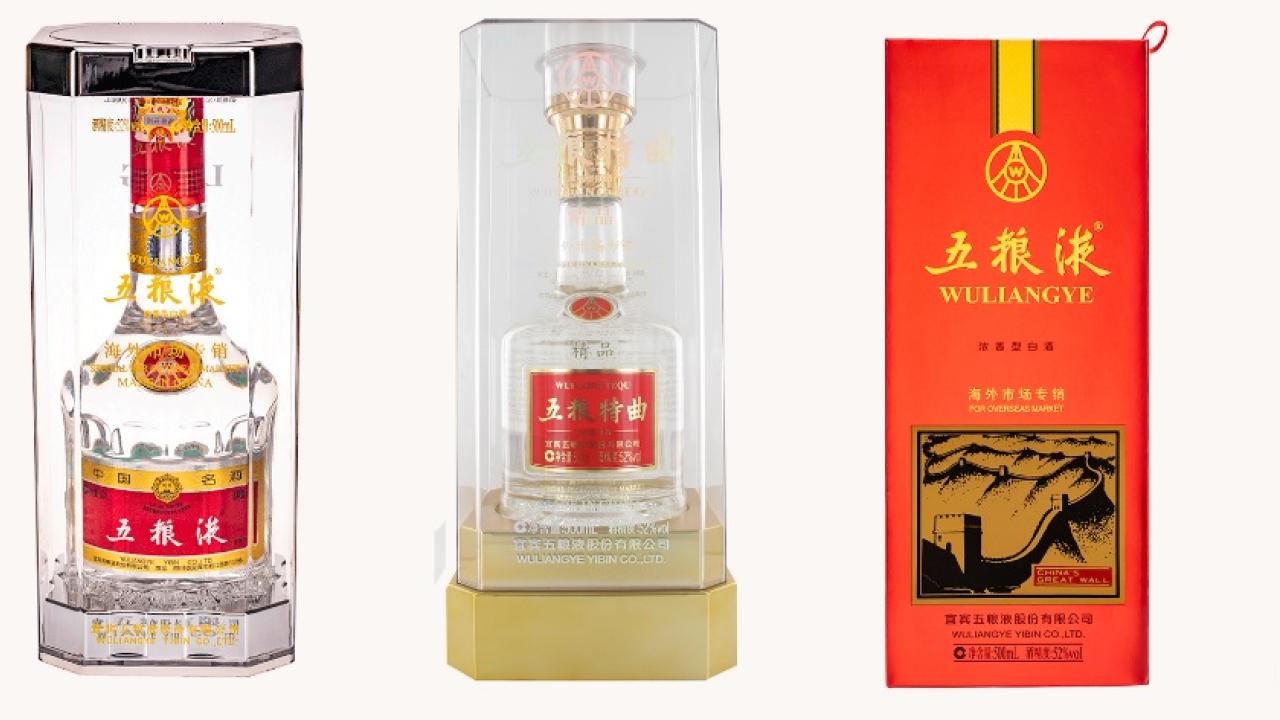
Chinese authorities promote it as one of the country's cultural symbols along with silk, tea, ceramics, martial arts and calligraphy.
“It is a bottle specially designed to commemorate 2024 as the Year of the Dragon, according to the Chinese horoscope, which is coincidentally the sign of President Gabriel Boric,” says delegate Chen Chong proudly.
Indeed, during the recent visit of a business delegation from the Chinese province of Sichuan to Chile, the Chinese authorities gave Mr. Borid a bottle of the Wuliangye brand with the shape of this mythical creature.
Wuliangye is the most relevant baijiu liquor - a high-alcohol distillate - in China. Made from five cereals --sorghum, rice, glutinous rice, wheat and corn-- it has a history of at least 650 years. Such is its relevance, that today it is one of the most prominent Chinese cultural symbols, along with silk, tea, ceramics, martial arts and calligraphy.
The brand, owned by the Wuliangye Group, a Chinese state-owned company, reached sales of US$138 billion in 2020 and is ranked among the 500 most important brands in the world, becoming one of the 50 most valuable liquor brands in the world in 2022.
The group has an average annual production of 100,000 tons of fermented raw baijiu. It has the world's largest grain fermentation workshop and the oldest aging cellars in existence, in use since 1368 during the Ming Dynasty. For all this, UNESCO and FAO declared that the unique conditions of climate, soil, water resources and vegetation that exist in the Yibin area is defined as the most suitable region for the production of high-quality baijiu in the world.
GATEWAY TO THE WORLD
International Wine and Spirit Research (IWSR) highlighted the promotion of Wuliangye on screens at Times Square, New York, for the Chinese New Year as an example of how Asian beverage brands are targeting new markets while seeking to diversify and expand businesses.
Wulianye seeks internationalization, to highlight China's presence in global markets.
In fact, for now, Chen recognizes that competing for a strong sales volume is not his objective, but rather the brand's goal is first to promote its image and the taste for this baijiu liquor as part of an image of sophistication associated with ancient Chinese culture.
Along this path, the firm has been promoting Wuliangye's presence in different events where this country participates, such as the CEO Summit of the Asia-Pacific Economic Cooperation (APEC), the China International Import Expo (CIIE) and in trade missions like that visited Chile in April.
Furthermore, in November 2023, Wuliangye and Italian group Campari signed a memorandum of understanding to collaborate in areas such as co-creating new products, expanding channels, strengthening marketing cooperation, and promoting brand culture.
Wuliagye can already be found in Latin American countries such as Panama, Guatemala and Colombia.
The premium category of the brand set its price within a range of US$ 150 to US$ 300, depending on the presentation.
Although the sales price in Chile has not been discussed, Zeng Congqin, president of Wuliangye Group, expressed the conglomerate's intention to promote a potential alliance with the local CCU, the main Chilean bottler of soft drinks, beers and liquors, owner of brands of pisco such as Horcón Quemado, Mistral Ice, Pisco Mistral, Pisco La Serena and as a distributor of international liquors, such as Beefeater gin, Havana Club rum and Absolut vodka.
For now, Wuliangye is imported in small quantities only to meet the demand of the Chinese community and some restaurants. Hence the conversations to expand its penetration in the local market by taking advantage of CCU's experience and sales network.
Chen Chong commented that, if some cooperation with CCU is carried out, it would not only be a way to market Wuliangye in Chile, it could also be the way to introduce Latin American liquors such as pisco to the Chinese market, in a similar way to the MOU reached with Campari.










